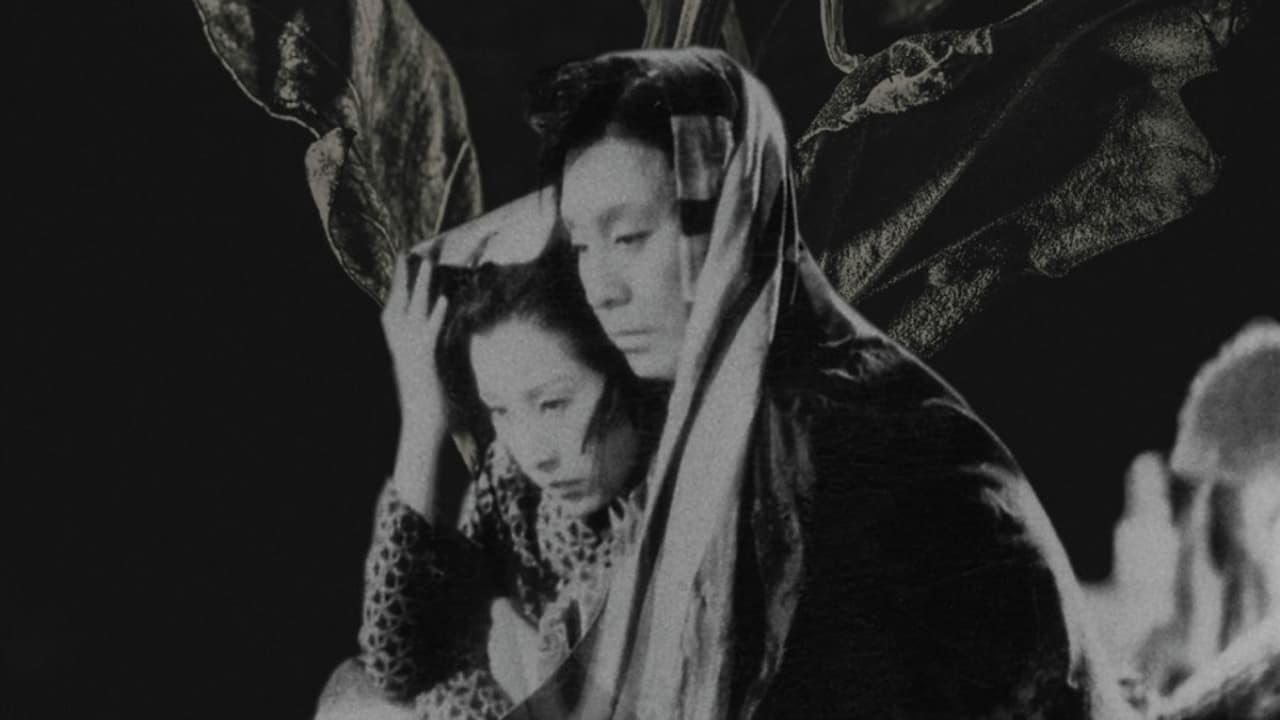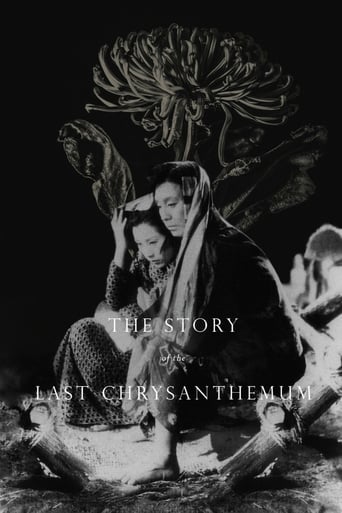Boobirt
Stylish but barely mediocre overall
Spoonixel
Amateur movie with Big budget
SparkMore
n my opinion it was a great movie with some interesting elements, even though having some plot holes and the ending probably was just too messy and crammed together, but still fun to watch and not your casual movie that is similar to all other ones.
Senteur
As somebody who had not heard any of this before, it became a curious phenomenon to sit and watch a film and slowly have the realities begin to click into place.
Jackson Booth-Millard
From director Kenji Mizoguchi (Sansho the Bailiff), this Japanese film was featured in the book of 1001 Movies You Must See Before You Die, obviously I had not read anything about prior to watching it, but that didn't matter, I was watching whatever. Basically, set in Tokyo in 1888, Kikunosuke Onoue (Shôtarô Hanayagi) is the adoptive son of an important famous Kabuki actor, he is the heir to his father, and that he finds out is the only reason he is praised as an actor himself. Behind his back the acting troupe complain about how bad he is, and the only person to be honest and talk to him about it is wet-nurse Otoku (Kakuko Mori), but she the family fire her. Kikunosuke is forbidden from seeing her because the family want to avoid the gossip that would be caused about one of them having a relationship with a servant. He has fallen in love with Otoku however, so he leaves home to be with her and try to find a better living as an actor outside of Tokyo, and also to try and gain respect back from his family. Also starring Gonjurô Kawarazaki as Kikugoro Onoue V, Kôkichi Takada as Fukusuke Nakamura, Ryôtarô Kawanami as Eiju Dayu, Nobuko Fushimi as Onaka, geisha, Benkei Shiganoya as Genshun Amma, Yôko Umemura as Osata, Kikugoro's wife, Tamitaro Onoue as Tamizo Onoue, Kisho Hanayagi as Tamisaburo Onoue and Tokusaburo Arashi as Shikan Nakamura. The acting is fine, the costumes and sets are good, and the long takes are interesting most of the time, I will be honest and say that some of the story was a little difficult to follow and keep up with, but I can see that this does represent well the insight into the roles of women in Japanese society, overall I agree it is a worthwhile period melodrama. Very good!
Od1n
I've read some very exciting comments about this picture and in the middle of the movie I realized how I'm disappointed a bit. Keep your expectations low, lads. It's not Mizoguchi's screenplay like "Sisters of Gion", this movie based on a book. Classic story, very predictable, with straightforward acting, especially lead woman with tears and tempted voice all the time.Although a beautiful visual look, I couldn't connect myself with the movie. Unlike to "Naniwa ereji" (Osaka Elegy, 1936) and "Gion no shimai" (Sisters of the Gion, 1936), which are also very simple, but truthful and realistic, with sudden thought provocative endings. I prefer and recommend this movies ahead of "Zangiku monogatari".
MartinHafer
I wish I spoke fluent Japanese--then I am sure I could have enjoyed the movie so much more. That's because this movie had horrible subtitles and often sentences or more were simply left untranslated or 50 words in Japanese were distilled down to only 3 or 4 words. In essence, the translators were very lazy and did a terrible job. Some might not mind this, but since I am a very avid fan of Japanese films it seriously detracted from the experience. This does NOT mean it is unwatchable or you should avoid it. In fact, if anyone knows of a better version available to Western audiences, let me know.The plot itself seems very familiar and is reminiscent of some other films, as its main ideas are respect for your elders and unrequited love. The main character is madly in love with his step-brother's nursemaid and the family strongly opposes it. I don't really think I need to divulge more but felt that the actors did a fine job and the story itself was interesting.UPDATE: There is a new DVD version from Criterion and I assume it's much better than the DVD I saw. Criterion always seems to do good jobs with subtitles on their film releases.
Kalaman
Along with "Sisters of the Gion"(1936) and "Osaka Elegy"(1936), "Zangiku monogatari" is a strong candidate for Kenji Mizoguchi's finest pre-war film. It is one of the greatest and most beautiful films I have ever seen - a profoundly sublime, heartbreaking love story between a Kabuki actor(Shotaro Hanayagi) and working class servant (Kakuko Mori) who makes sacrifices to herself to ensure his theatrical success. The film, filled with dazzling long takes and rich Sternbergian compositions, centers on Mizoguchi's characteristic theme: the shallowness of men and the generosity of women. Rarely has a Mizoguchi film seem at once so sublime and devastating in its impact. The final sequence alone is among the finest in all of cinema.My favorite Mizoguchi remains "The Life of Oharu"(1952); "Zangiku monogatari" is not very far behind.

